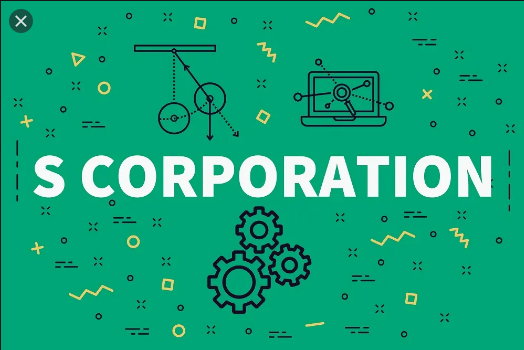When it comes to structuring a business, small business owners are most times given S corporation as the recommended option. But whether you should actually become an S corporation is dependent on so many factors like the type of business, the plans for the business, and the short- and long-term goals of the owners.
Here we will help you understand the advantages and disadvantages of an S corporation, to help you know if it is the right business structure your company needs.
What is Subchapter S Corporation (S Corp)?
S Corporation also referred to as an S subchapter, is a type of corporation that meets specific Internal Revenue Code requirements. This corporation offers all the advantages of a corporate business structure while enabling the profits and losses to pass through to the shareholders(s), just like in the case of an LLC or partnership.
How S Corporations (S Subchapter) Works
Corporation taxes that are filed under Subchapter S may pass over business income, losses, deductions, and credits to shareholders. Shareholders report income and losses on individual tax returns, and in turn pay taxes at ordinary tax rates, while S Corporations on the other hand pay tax on specific built-in gains and passive income at the corporate level.
Shareholders of S corporation must be individuals, specific trusts and estates, or certain tax-exempt organizations (501)(c)(3). Note that partnerships, corporations, and nonresident aliens are not eligible as shareholders. Specific financial institutions, insurance companies, as well as domestic international sales companies are also ineligible.
Eligibility
Eligibility criteria includes being a domestic corporation, not having more than 100 shareholders, which includes only eligible shareholders as well as having only one class of stock.
Advantages
- S corporation offers the liability protection of a corporation with the pass-through of LLCs and partnerships, and this has over the years made it the preferred business structure for small business owners.
- The existence of the company does not expire.
- An individual can form a Subchapter S corporation.
- Transferable ownership interests.
- Only the wages of an employee are subject to the 15.3% self-employment tax, while other benefits and bonuses are excluded.
Disadvantages
There are also disadvantages, and they include:
It includes creating and filling the same paperwork as a Subchapter C corporation, like Articles of Incorporation, Keeping corporate minutes, scheduling board of director meetings and shareholder meetings, and offering a way for shareholders to vote on corporate issues.
The additional paperwork and tax filings encompasses some or all of the following on a regular basis:
- Schedule SE: Self-Employment Tax
- Form 1040-ES: Estimated Tax for Individuals.
- Forms 2553, 941 and 940
- Income Tax Return for S Corporation
- K-1: Shareholder’s Share of Income, Credit, Deductions
- Form 4625 Depreciation
- Also, it can only issue common stock to shareholders, this is less desirable to potential investors.
On the whole, if you are looking for a company structure that offers the advantages of a corporation along with pass-through taxation, then S corporation may be the right option to pick. But before you go headlong into it, we advise you to weigh the advantages of being a corporation against the lack of flexibility and the more extensive formalities imposed on a corporation.
That said if you feel the advantages outweigh the disadvantages for, why not go for it.


